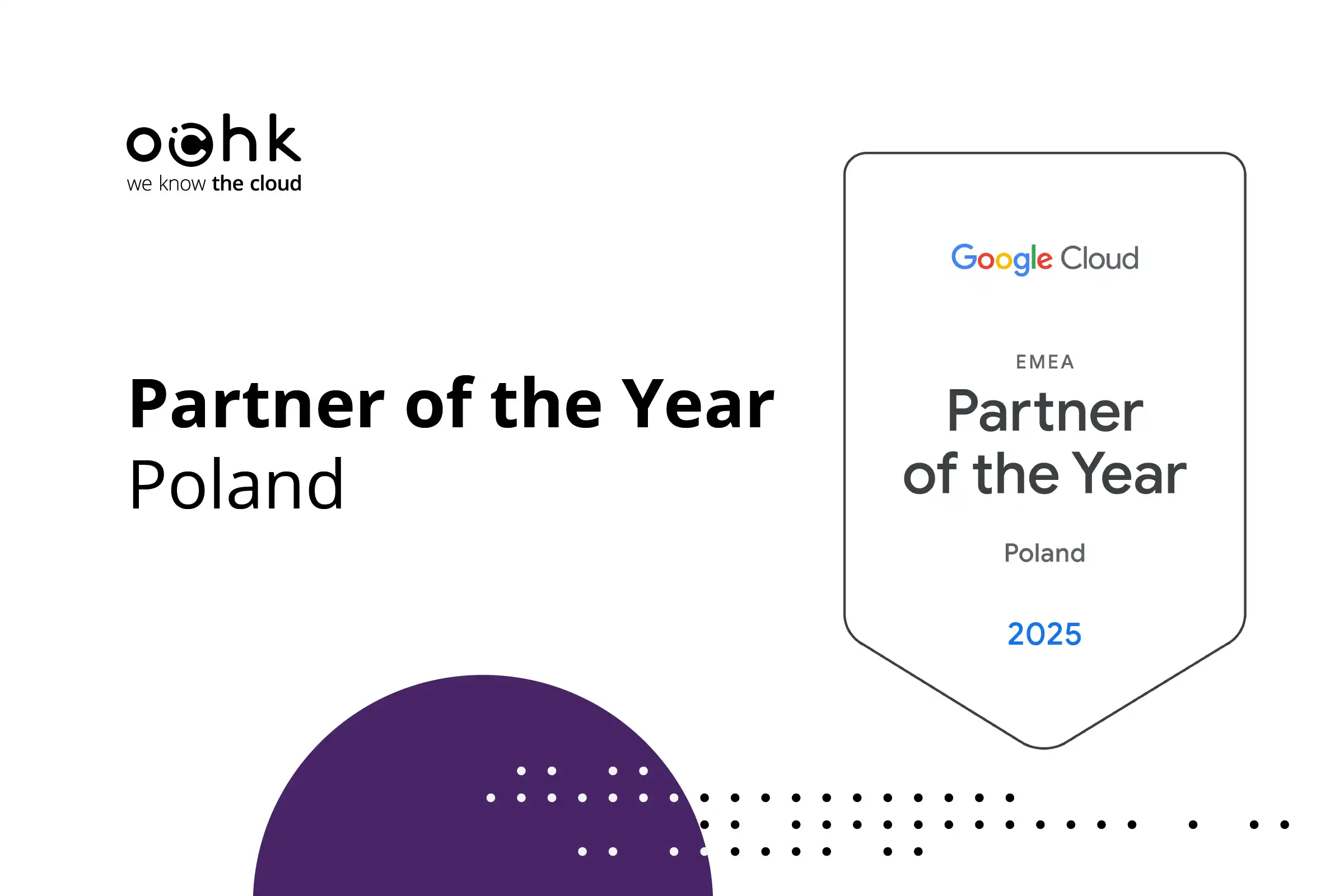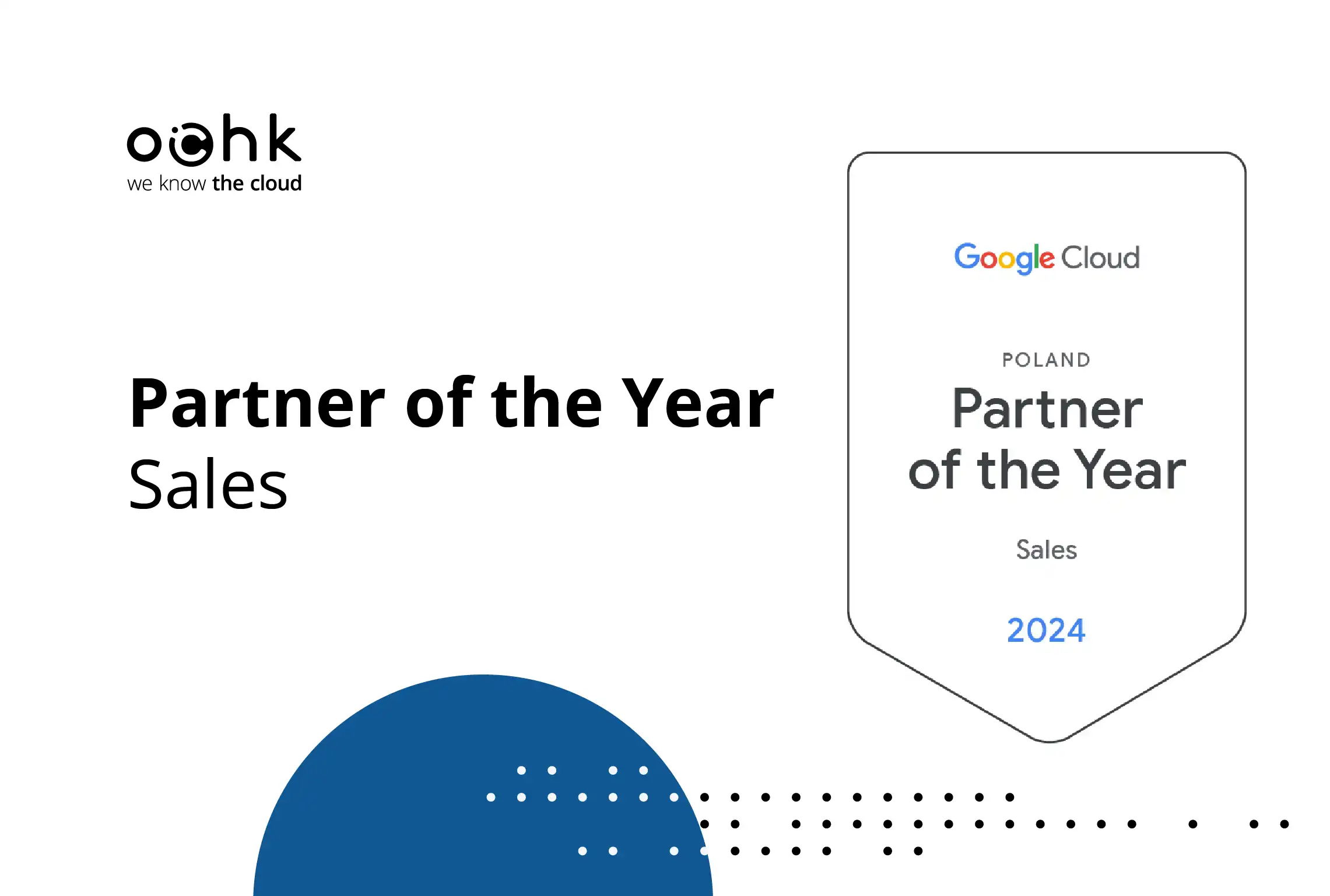Today marks a unique opportunity to celebrate OChK's fifth anniversary. It's a time for reflection, but also for looking forward.
Our fifth operational year has turned out to be a record-breaking year in our history. We predict that our revenue in 2023 will reach PLN 350 million, resulting in a remarkable annual average growth rate of 140%. We are an independent, financially stable and cash generating company and our EBITDA is projected to reach over 4 million PLN in 2023. While these numbers make me and my team proud and financial statements can summarize our operations, creating long-term value requires a comprehensive assessment that goes beyond financial performance.
In 2018, when OChK was established, Poland had one of the lowest levels of cloud service adoption among businesses in the European Union. Several factors contributed to this, including the lack of local data centers from major global cloud service providers such as Google, Microsoft, and AWS in Central Europe. Additionally, the market lacked the necessary competencies, and the regulatory framework was not favorable for cloud adoption, particularly in the financial industry and among large corporations. At the beginning of the second decade of the 21st century, Polish financial institutions were introducing unprecedented mobile and payment solutions. However, innovation soon slowed due to limited access to advanced technologies available only in the public cloud. Consequently, Poland began to lose its digital edge.
OChK was established in response to these challenges, and in hindsight, we accomplished exceptional solutions. Currently, Poland has emerged as a pivotal technological center in Europe, thanks to the investment partnerships established with OChK. Both Google and Microsoft have opened data centers in Warsaw, thanks to investment agreements with OChK. The Polish labor market boasts the largest technological potential in Europe, with tens of thousands of certified cloud architects and engineers. This is proven by the continuous investments of major companies such as Snowflake and Google in their competence centers in our country. Currently, Polish engineers are developing cloud services for data analysis and AI.
The timing of these investments was crucial. The Covid-19 pandemic globally showcased that numerous companies would not have survived the subsequent lockdowns without the cloud. This is especially true without the remote working tools it provides or the capability to quickly establish new communication channels with clients or suppliers. It served as a substantial test of our agility. OChK built an e-Registration system for vaccines in record time. It was utilized by more than 30 million people who received over 50 million doses. The cloud played a critical role in supporting crisis management. Another challenge to this thesis has been the war in Ukraine. OChK's efforts to combat Covid-19 and provide solutions to help Ukrainian refugees earned the company two Google Partner of the Year awards. While I am grateful for these acknowledgments, I hope there will not be a need for a third instance. Our thesis has already been validated.
The perception of the cloud among businesses and government has changed significantly in the past five years. It is estimated that up to five times more organizations are using the technology today than in 2018. The cloud represents the latest available technology, which speeds up the process of creating and deploying new products and services. As a result, organizations can drive their business expansion and scaling strategies more efficiently. Data analytics, enhanced by AI, helps us understand client needs and drive global competitiveness. OChK's five-year anniversary marks the end of a period of investment, building technology awareness, and market acceleration. Today, we're 100% focused on providing multicloud and value-added services to our hundreds of clients from Poland and abroad every single day. We focus on application migration and modernization, AI and data solutions, and improving digital resilience through education and advanced security implementation. Our team prioritizes a culture of cybersecurity by design and develops technology solutions to address unique business challenges.
Among our clients are traditional businesses, public administrations, global corporations that value our competence, but also technological startups and scale-ups. Our diverse and successful projects have demonstrated that technology alone is not the only critical success factor, nor does it ensure the achievement of business objectives. Success depends on a skilled, certified, dedicated and focused workforce. In today's modern world, where innovative technology is accessible to all, it's the team that distinguishes mediocre outcomes from outstanding achievements. At OChK, I am honored to work with a team of nearly 150+ of the best architects, engineers and cloud experts in this part of Europe. Their talents drive our company forward and create its lasting value. Moving to the cloud can be a game-changer for organizations facing complex challenges, and we specialize in solving those challenges through the language of technology. It requires a shift in culture that promotes speed, agility, adaptability, and the ability to manage change. At OChK, we embrace these values and strive to deliver them to our clients.
According to market analysts, cloud services spending in Poland has been growing at an annual rate of 30 percent (making the overall growth of OChK even more impressive). However, the world continues to evolve, demanding further acceleration. We are on the verge of a revolution in artificial intelligence, particularly generative AI, which has the potential to completely change the rules of the game, the pace, and the method by which business value is delivered. Success in this new reality will be limited to those who successfully adapt cloud technologies. This is the only way to gain access to the most advanced AI solutions that require significant computing power. In the discussions surrounding the potential uncontrolled development of artificial intelligence, it's worth asking who will be in control: humans or AI? The answer is not simple or clear, but I hope that we can deal with artificial intelligence, even generative, as well as with the cloud.


